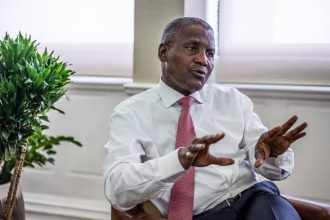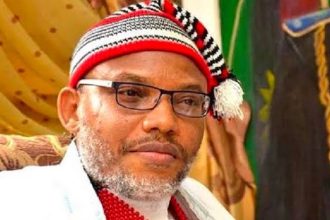Prominent human rights lawyer and Senior Advocate of Nigeria (SAN), Femi Falana, has described the proposed bill to make voting compulsory in Nigeria as unconstitutional and fundamentally flawed.
The controversial bill, which seeks to amend the Electoral Act, is co-sponsored by the Speaker of the House of Representatives, Tajudeen Abbas, and Labour Party lawmaker Daniel Asama Ago.
It proposes mandatory voting for all eligible Nigerian citizens and prescribes a six-month jail term or a N100,000 fine for defaulters.
Presenting the bill at plenary, Ago—who represents Bassa/Jos North Federal Constituency—argued that the initiative aims to address growing voter apathy and curb vote-buying.
The Deputy Speaker, Benjamin Kalu, also backed the bill, citing Australia’s model of compulsory voting as a successful example of fostering civic engagement.
However, in a strongly worded statement titled “Compulsory Voting is Not Enough”, issued on Monday, Falana dismissed the legislative effort as unconstitutional, warning that it undermines citizens’ fundamental rights as enshrined in the 1999 Constitution.
He pointed out that the bill violates Sections 37, 38, 77(2), 135(5), and 178(5) of the Constitution, which guarantee rights to privacy, freedom of thought and conscience, and voluntary participation in the electoral process.
“The Speaker of the House probably wants Nigeria to emulate Egypt—the only African country with a compulsory voting system,” Falana said. “But in doing so, they ignore the critical constitutional safeguards that protect the freedom of choice.”
He further criticized the practicality of the bill, noting that prosecuting millions of Nigerians for non-participation in elections would be unrealistic and counterproductive, especially given the widespread disillusionment with the electoral process.
According to Falana, the legal backing for such a bill is also weak, as the relevant guiding principles in Chapter II of the Constitution—though outlining the ideals of governance—are non-justiciable.
“Unless Chapter II becomes justiciable, compulsory voting lacks a lawful foundation,” he said.
The senior advocate also took a swipe at the judiciary, accusing Nigerian courts of routinely disregarding Section 224 of the Constitution, which obliges political parties to align their programmes with the directive principles enshrined in Chapter II.




